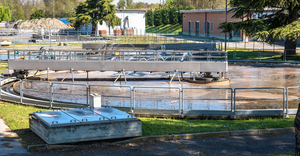December 1, 1994
Businesses are turning to citizens' suits under the Resource Conservation and Recovery Act (RCRA) for a faster, easier and more cost-effective way to sort out hazardous waste cleanup responsibility.
These companies and other private parties have learned that environmental self-help under RCRA beats Superfund or traditional common law claims in assuring the upper hand against those responsible for contamination.
Section 7002(a)(1)(B) of RCRA allows any person to sue another person, including a federal, state or local government agency, who handled, stored, transported, treated or dumped any wastes that may imminently or substantially endanger health or the environment.
Last year, a federal district court in California ruled that a property owner was entitled to an injunction under RCRA. The order forced the current and former operators of three dry cleaning facilities to in-vestigate and monitor groundwater contamination caused by their careless disposal of cleaning solvents (Lincoln Properties Ltd. v. Higgins, No. S-91-0760 DFL, E.D. Cal.).
The local water quality board directed Lincoln Properties, the owner of a shopping center near Stockton, to investigate potential soil and groundwater contamination from dry cleaning establishments that operated at the center for more than 30 years. Despite its belief that Lincoln did not cause any contamination, the board re-fused to target the dry cleaning firms in the investigation. After paying for a preliminary study, Lin-coln balked at spending its own money for additional work, which seemed likely to uncover conditions that would entail extensive remediation efforts. Instead, it filed a citizens' suit under RCRA against the dry cleaners.
U.S. District Judge David F. Levi made three key rulings in favor of Lincoln: (l) the cleaning compounds in the groundwater under the mall were hazardous wastes; (2) the dry cleaners were responsible for disposing of these substances; and (3) the contaminated groundwater posed an "imminent and substantial threat of harm" to off-site water supplies.
As a result, the court declared that the dry cleaners were individually and collectively liable to Lin-coln, and ordered the firms to "jointly and severally participate in the investigation, monitoring and testing of the . . . contamination" at the site.
The court also ruled that the cleaners' remedial study and any proposed cleanup plan must be consistent with the National Con-tingency Plan (NCP) and that Lin-coln could supervise the study de-sign and subsequent cleanup.
If Lincoln had sued the dry cleaners under the Comprehensive Environmental Response, Com-pensation and Liability Act (CERCLA), Lincoln would have had to incur sizable response costs and then prove that such costs were consistent with the NCP - with litigation dragging on for years. More-over, Lincoln would have had to pay its own litigation costs, in-cluding legal fees, because such ex-penses are not reimbursable "re-sponse costs" under CERCLA, ac- cording to a U.S. Supreme Court ruling.
Filing a claim under RCRA has decided advantages over a CERCLA action. For one thing, RCRA covers a broader range of potential contaminants. For another, RCRA ex-pressly allows the court to award litigation costs, including attorneys' fees, to the winning side. In addition, it is easier to prove a case for injunctive relief under RCRA than under CERCLA or traditional state common law claims such as negligence, nuisance or trespass. Fi-nally, courts have been comparatively generous in finding "imminent and substantial endangerment" for RCRA citizens' suit plaintiffs. Disaster need not be near-at-hand; a plaintiff can often meet its burden of proof by demonstrating a mere risk of harm, but not necessarily actual harm. What's important is the mere possibility of danger. Judge Levi, for example, ruled in favor of Lincoln even though he found that the shopping center's contamination was not likely to endanger municipal water supplies for 10 to 15 years.
Before filing a citizens' suit, a plaintiff must give 60 days' notice to prospective defendants, to officials at the Justice Department and EPA and to the chief state solid waste management officer. A citizen suit is not allowed if EPA is already pursuing RCRA or CERCLA actions involving the affected site. However, if the state is prosecuting an administrative action against the site, the citizens' suit may proceed at the same time.
The Lincoln Properties decision has proven that a victim of contamination can turn the tables and shift the worry, effort and costs of remediation to the perpetrators.
About the Author(s)
You May Also Like




